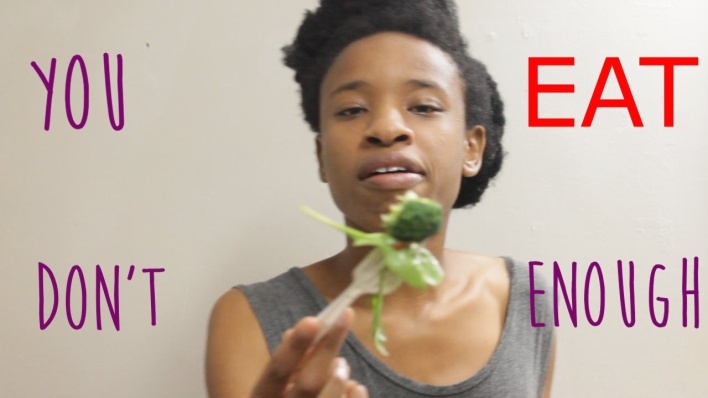


Whether you want to lose weight and do not eat enough or you often forget about having a snack when powering through your to-do list, you will end up experiencing certainly complications. Your body needs important nutrients to function properly and not eating enough is a surefire way of lowering your intake of important nutrients. This will eventually lead to serious health complications. In fact, it can affect you mentally, physically, and even psychologically.

Skipping meals occasionally may not cause serious health issues, but doing it often and not eating enough can lead to several complications.
Not getting enough calories will keep you feeling tired throughout the day. It will be difficult to drag through the day in many cases. You need enough calories to help your muscle tissues to fire up, which will make you feel tired. Your body uses the calories you are eating to fuel the most important functions in your body – it will support your heart and brain first and shut down other tasks until you increase your intake of calories. Therefore, feeling tired is a common problem associated with not eating enough.
Lowering your caloric intake is important for weight loss, but if you do it drastically, it will prove counterproductive. The reason is that a drastic reduction in your calorie intake would send your body in a survival mode where it will start using your muscle mass and not burn any fat. Your metabolism will slow down to use whatever little food you are eating. Thankfully, it is not going to lead to a permanent change in your metabolism and you bring things back to normal by increasing your intake of calories. Therefore, you need to understand that healthy eating is extremely important to continue losing weight in a healthy way.
What happens when you don't eat enough? One common problem is constipation. It happens because under-eating may keep you from getting enough fiber to help regulate your bowel movements. Overtime, this will slow down your digestive system and make it difficult to have a bowel movement. Under-eating may also be associated with dehydration, which may also lead to constipation.
If you are not eating enough because you want to lose weight quickly, stop. Not eating enough food will affect the balance of hormones responsible for making you feel hungry, such as ghrelin, leptin, and cholecystokinin. You can keep yourself from eating enough for a short time, but this will make you feel hungry all the time and you will eventually be losing it all and start overeating.
What happens when you don’t eat enough? Not eating enough can make you feel hungry, but it can also make you feel thirsty all the time. That happens because under-eating is often associated with dehydration, which is the result of not getting enough electrolytes, such as sodium, calcium, magnesium, and potassium. Increasing your intake of water will not help in this situation because you need more food with important minerals.
Under-eating can also make it difficult for you to conceive. You need a specific body fat percentage to be able to get pregnant and have a healthy pregnancy. Not eating enough can lower body fat percentage and lead to infertility problems and amenorrhea in women. This can also lead to menstrual irregularity with no egg released during ovulation.
You need to eat enough food after regular intervals to help regulate your blood sugar levels. Not getting enough calories is often the culprit behind wild blood sugar swings; in fact, hypoglycemia is one of many problems associated with chronic under-eating. You may even develop symptoms like shakiness, hunger, dizziness, anxiety, confusion, sweating, weakness, and changes in mood.
Hair loss is what happens when you don't eat enough. This indicates nutritional deficiency. Not getting enough protein, calories, and important nutrients can also lead to hormonal changes, which can cause hair loss. This can also lead to a drop in sex hormones, such as testosterone, progesterone, and estrogen, which may also be linked to hair loss and other serious problems related to reproductive system. You need to switch to a nutrient-dense, protein-rich, whole foods diet to stop hair loss.
You may have gathered the fact that overeating is bad for your health, but under-eating can lead to serious issues as well. You need to work with a dietician to determine the number of calories you should be eating on a daily basis to maintain a healthy body weight. Here, you should consider your stress levels, physical activity, history of chronic disease, sleep adequacy and many other factors to know exactly how many calories to eat on a daily basis.
A simple way to find the 'lowest' amount of calories you should get daily is to multiply your ideal body weight as per your height by 10. For instance, if you are a woman of 5'5'', your ideal body weight is 125 pounds. It means you should at least be getting 1250 calories a day. However, you should be eating more if you exercise a lot – you may want to eat another 400 calories if you exercise regularly.